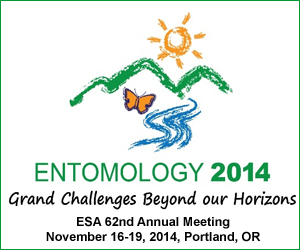Postmortem changes in chemical profile and undertaking response in termites
Postmortem changes in chemical profile and undertaking response in termites
Monday, March 10, 2014: 3:54 PM
Davenport (Des Moines Marriott)
Undertaking behavior is a colony hygiene activity in social colonies to collectively prevent the spread of infectious disease, and considered an essential adaptation to social living. In termites, undertaking response varies depending on the nature of corpses, but little is known about the underlying mechanism. In Reticulitermes flavipes, the most common subterranean termite in North America, workers exhibit differential undertaking responses toward corpses with different postmortem times. Specifically, newly deceased corpses were retrieved and cannibalized by their nestmates, whereas aged corpses were buried. To link chemical profile with behavioral repertoire, death-related chemicals were documented postmortem in R. flavipes using gas chromatography-mass spectrometry. The results showed that two volatiles, 3-octanone and 3-octanol, occurred immediately after the death, while fatty acids, phenol, and indole gradually built up with longer postmortem time. Using an integrative approach combining chemical ecology and behavioral bioassay, specific effects of these chemicals on undertaking response were investigated.
See more of: Ph.D. Student Ten-Minute Paper Competition: SysEB, MUVE Session
See more of: Student Oral Paper Competition (Ten-Minute)
See more of: Student Oral Paper Competition (Ten-Minute)


